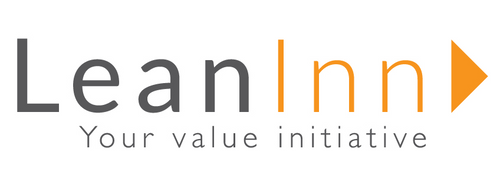
Organizational culture is a dynamic operating system made to drive organizations forward. We can define it as a set of shared beliefs, values and practices that focuses all its activities as an aid for the fulfillment of the objectives of the corresponding entities.
Organizations have different characteristics that distinguish them, with which they develop an organizational culture in accordance with their main objectives. Although there are organizations that make up companies, the truth is that there are no companies that make up organizations, and this is because their objectives are usually different.
Talking about culture in general responds to a model for doing things, whether within an organization or a company. The difference between these two is that the concept of organization ranges from private companies to non-profit organizations; instead, a business is typically a for-profit entity.
Organizational culture is one of the issues that the company is most concerned about when it comes to people management. And it is that the culture within an organization is what forms it, gives it its essence and is the structure based on which measures are taken, it is communicated, objectives are achieved, and people are motivated.
The importance of organizational culture.
The organizational culture is fundamental in any organization since it guides the course of the company and guides the way in which it should be conducted. It also directs the treatment that should be given to employees, customers, and society in general.
The organizational culture has two major axes of importance: an internal one, which is related to the staff, managers, work environment; and another external, in relation to the community in which the organization is inserted.
Elements of organizational culture.
There are different elements that constitute the organizational culture and operate together. The main elements are:
Identity of the organization: the organizational culture is defined, in part, by the mission, vision and values of the company. The identity of the organization arises from the answers to the following questions: What type of company is it? What are your values? What are your goals? What is your mission?
Control systems: the organizational culture must have control systems, that is, processes that monitor what is happening inside a company with human capital (employees and managers).
Power structures: the organizational culture establishes who are the decision makers, how power is distributed and in what percentages.
Symbols: the organizational culture is made up of all the designs (visual and auditory support) that are part of the company's identity.
Routines: the organizational culture includes all business meetings, business groups, performance reports that occur within the organization. These routines can be formal or informal.
Characteristics of organizational culture.
The organizational culture has certain characteristics that are key to achieving a positive impact both in human relations and in the projection of the organization. It is up to each company to apply or adjust them according to their vision.
Here are some essential features:
Risk tolerance: Refers to the degree of freedom that employees must make risky decisions.
Proactivity: refers to the degree of independence that individuals must make decisions for themselves within the organization.
Shared culture: refers to the values, beliefs and behaviors that are shared by the members of the organization.
Communication model: It implies a hierarchy in terms of functions and processes in the company's internal communications.
Control: A characteristic to validate the fluidity of processes in organizations is the degree of direct supervision of employees. Generally, the higher the degree or number of supervisors, the less fluid the processes are.
Incentives: the organizational culture must contemplate the existence or not of an incentive system, as well as the criteria with which employees can enjoy them: productivity, seniority, among others.

Types of organizational culture.
Power-oriented organizational culture.
Its objective is business competitiveness, which is why its values and culture in general are aimed at highlighting its position in the market. Business leadership is its main aspect.
This culture sees the employee as someone who provides a service. Call to form working groups among area directors only when problems arise; Outside of these incidents, the work is individual and the information in each area is private.
Norms-oriented organizational culture.
Seek the stability and security of the company with strict compliance with internal rules and regulations; therefore, it is common for sanctions to be applied to anyone who violates them. It adheres to the processes, protocols and procedures to guarantee correct operation, for which it establishes functions and responsibilities.
Results-oriented organizational culture.
Its objective is the efficiency and optimization of work processes; In addition, it prioritizes short-term goals and encourages the saving of resources, both material and human.
People-oriented organizational culture.
This culture focuses on the personal and professional development of its work team, promotes social values, and encourages motivation and creativity. It is also inclusive and seeks customer and employee satisfaction.
Nowadays, many companies have chosen to take care of their employees because they see in them something more than the provision of a service: they consider them as the main representatives of the brand.
If you have a company, project or organization, at LeanInn we train and advise you to implement an effective organizational culture in all its areas. Enter the following link for more information: https://bit.ly/3G3BQOG
Training courses: https://bit.ly/3ME7u80
¡Take the risk to create a culture in your organization, where your employees, customers and suppliers feel part of a family committed to achieving excellent results!
¡With LeanInn everything is possible!

